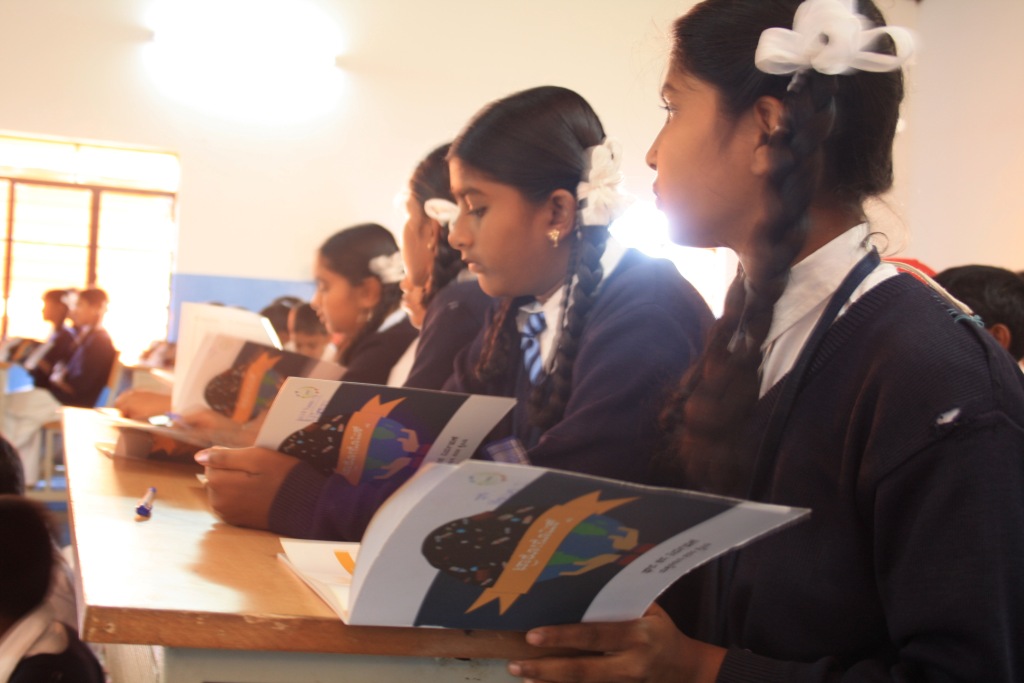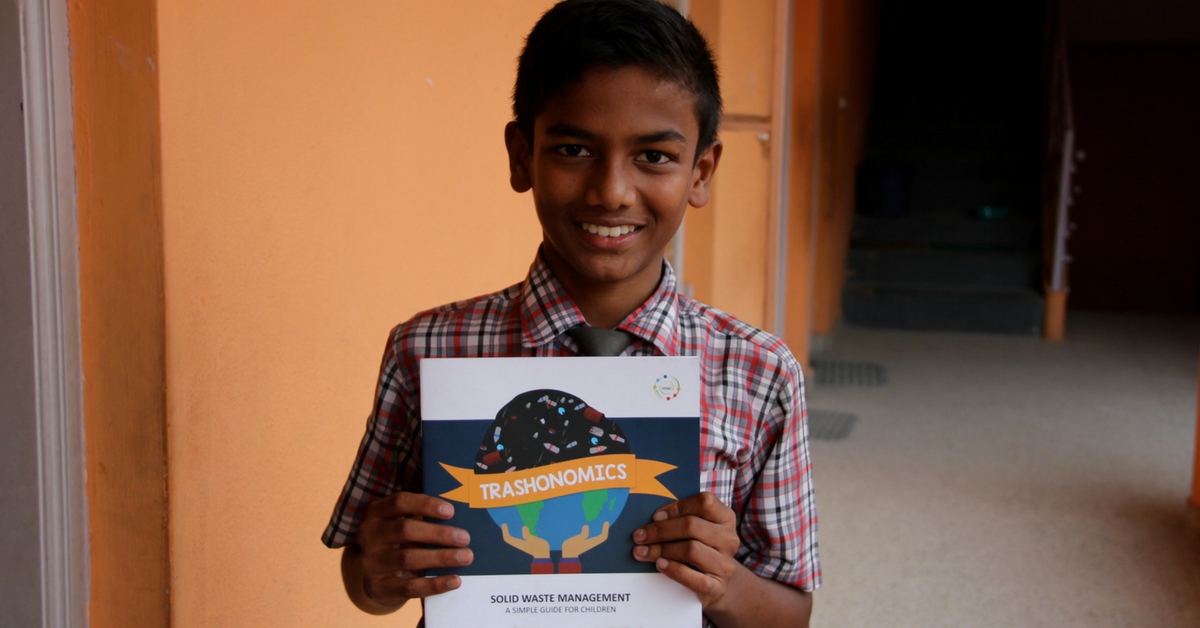In 1802, poet extraordinaire William Wordsworth wrote “the child is the father of man” in his poem The Heart Leaps up. Interpretations suggest that the poet meant that human beings are shaped by their childhood habits and learning. Indeed, the importance of a wholesome childhood education cannot be stressed enough.
“Students are taught physics, chemistry and biology in school. But why isn’t waste management a part of their education,” says Bengaluru resident Archana Kashyap. Propagating the importance of having access to clean water, air and soil—and understanding its value, Archana and her associates have turned towards inculcating these values among children with a book titled Trashonomics.
Aimed at school children, Trashonomics addresses the fundamental principles of effective waste management.

The book is an initiative of Solid Waste Management Round Table (SWMRT). A Bengaluru-based group of experts and citizens, the organisation promotes decentralised sustainable waste management. Archana, a member of SWMRT and co-author of Trashonomics, says, “We don’t believe in having our garbage travel hundreds of miles to land up in someone else’s backyard.”
The SWMRT has led a number of campaigns in the city and even collaborated with municipal bodies to launch effective policy decisions. “A lot of great policies have been passed in the city, but there is still a lack of awareness,” says Archana. “During our campaign, we realised that many adults were biased and cynical about whether things would really change.”
You might also like: A Small Village in Kerala Shows the Way to Efficiently Manage Waste at the Local Level
The understanding led the team to consider a different strategy — target a younger audience, namely school students, and educate them on the value of waste management. Their aim was two-fold — empowering the students with easy-to-understand lessons and inspiring them to teach others in turn.
“The idea is to sensitise students to garbage—to tell them that throwing waste in garbage bins isn’t enough. They have to throw it in the right garbage bin. As students learn, they can teach their parents and teachers.”
Envisioned as a book that could be part of school curricula, Archana and Claire Rao compiled the contents, drawing information from research, interaction with experts and organisations like Saahas, Karuna Society, Kasa Muktha Bellandur and We Care For Malleswaram. The illustrations and design in the book were done by Sahil Kutti.
The book was released in June 2016 by the Karnataka State Pollution Control Board, which also commissioned 1,000 copies for distribution in government schools.
According to Archana, the five-chapter book offers a holistic approach to waste management. Trashonomics—a portmanteau of trash and economics—covers a wide variety of subjects. Why three-way segregation is better than two-way segregation, how to reduce waste by methods like composting, what happens once recyclable products are trashed, how to keep the welfare of waste management workers in mind, how to deal with sanitary or hazardous waste are some of the subjects emphasized in the books.
Waste management is a life skill too, asserts Archana. “We want to empower the next generation so that in a few decades, ambitious as it sounds, waste management will not remain an issue at all.”
The information given in the book is currently taught at workshops conducted by volunteers who undertake a two-hour training session before they start heading to schools for sessions. The workshops are interactive—students aren’t just taught theories but given hands-on training with composting and recycling activities.
The workshops are frequently conducted in government schools, where underprivileged students have not only shown inclination for learning but also applying their knowledge to improving their surroundings. The team has also organised a few events in private schools and are now working on a possible collaboration for future workshops in such institutions.
Archana and the Trashonomics team foster the dream to see their self-funded project as part of school curricula around the country.
The book is currently available in two languages—English and Kannada. The Bengaluru team is currently working with volunteers in Delhi to translate the book into Hindi, and follow it up with workshops and events in other parts of the country.
Archana admits it is not easy, but hopes that schools — and the education sector at large — will gradually realise the importance of including waste management as part of their syllabus. Till then, the team hopes to spread the world with workshop and collaborations with like-minded organisations and individuals.
You might also like: Meet the Private Sector Startups Leading the Drive for Better Solid Waste Management in India
Ultimately, the Trashonomics team is invested in contributing towards the pan-Indian movement on waste management. The book is a guide to resources and developments in the waste management section, says Archana. Taking a creative approach to workshops, or interpreting the content of the books in innovative ways, can help spread the word about waste management more effectively.
For more information on Trashonomics, head to their official website.
Like this story? Or have something to share? Write to us: contact@thebetterindia.com, or connect with us on Facebook and Twitter.
NEW: Click here to get positive news on WhatsApp!
If you found our stories insightful, informative, or even just enjoyable, we invite you to consider making a voluntary payment to support the work we do at The Better India. Your contribution helps us continue producing quality content that educates, inspires, and drives positive change.
Choose one of the payment options below for your contribution-
By paying for the stories you value, you directly contribute to sustaining our efforts focused on making a difference in the world. Together, let's ensure that impactful stories continue to be told and shared, enriching lives and communities alike.
Thank you for your support. Here are some frequently asked questions you might find helpful to know why you are contributing?

